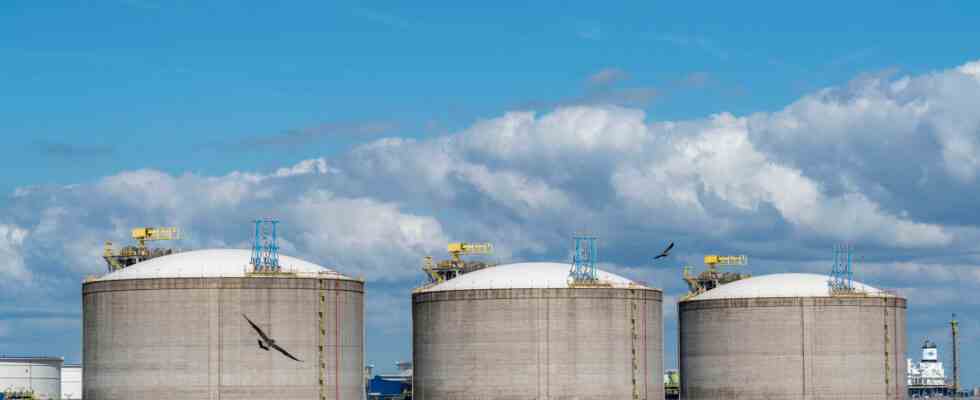Status: 02/20/2023 11:13 a.m
The EU’s gas price cap is intended to protect citizens and businesses from excessive prices. As of today, the stock exchange operator ICE is launching a parallel trading platform where the EU measures can be circumvented.
The US operator of the European gas exchange TTF in Amsterdam is opening another trading venue in London because of the gas price cap in the EU. Parallel trading starts today. This was announced by the operator Intercontinental Exchange (ICE) at the weekend. This should give retailers the opportunity to circumvent the EU price cap measures that have been in force since February 15.
ICE Endex operates the Amsterdam-based gas exchange Title Transfer Facility (TTF), Europe’s most important hub for natural gas. Trading on the Amsterdam gas exchange will continue as before, ICE said.
Price cap does not apply to UK
A flexible price cap has been available in the EU since February 15 to protect business and consumers from excessive gas prices. In concrete terms, it is intended to prevent wholesale gas prices in the EU from being significantly higher than world market prices for a long period of time. In addition, the EU can in future ban certain gas trading transactions if their price reaches a predetermined level and the price increase does not correspond to a comparable increase at regional level or on the world market.
However, the operator ICE fears that trading will be disrupted by the correction mechanism. Bids above the upper price limit can then no longer be entered into the order book by market participants. A price limit could also ensure that producers no longer want to deliver to EU countries. The London market would not be subject to the 27-country bloc’s gas price cap as the UK is no longer an EU member. The parallel market takes place at ICE Futures Europe in London.
Correction mechanism takes effect at a limit of 180 euros
The so-called market correction mechanism is only triggered if the price of the products exceeds 180 euros per megawatt hour for three working days and at the same time is 35 euros above an international average price for liquid natural gas (LNG). At the moment, however, that seems a long way off: the price for European natural gas had recently fallen below EUR 60 per megawatt hour and was thus significantly lower than the limit of EUR 180 set by the correction mechanism.
As a result of the Russian war against Ukraine, natural gas prices rose sharply last year, peaking at more than 300 euros per megawatt hour. Recently, however, prices have fallen significantly as a result of well-stocked gas storage facilities, high imports of liquid gas and lower demand.
“Insurance Option” for Customers
ICE had already announced the introduction of a parallel market for gas trading at the end of January. ICE’s Trabue Bland said the second market offers an “insurance option” for customers in case the EU price cap prevents them from taking action or managing their risk.
A spokesman for the Dutch Economy Ministry said last month that the news about the London hub was not unexpected. “This is fully in line with what we expected and what the EU had also warned about.”
The EU cap sparked heated debates between EU member countries: Belgium and Poland were among the supporters of the measure to protect consumers from rising energy bills, while skeptics like Germany and the Netherlands feared it could disrupt markets.

